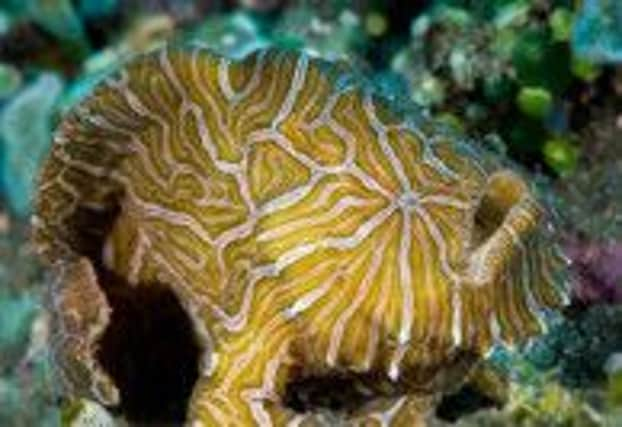Almost 1,000 new fish species discovered since 2008


The new fish species include 122 sharks and rays, 131 members of the goby family and a Mediterranean barracuda.
All were identified by scientists compiling the World Register of Marine Species, a global inventory of all known ocean life.
Advertisement
Hide AdAdvertisement
Hide AdSome 1,451 sea creatures were added to the list last year alone, including two previously unknown dolphins.
A ruby red sea dragon from southern Australia was added to the inventory just last month.
Other new fish include a Mediterranean barracuda, a “psychedelic” Indonesian frogfish and a “homely” African frilled shark.
The new register shows the world’s oceans are home to more than 228,000 marine species. But the team behind the research suggest there could be up to two million more that are yet to be discovered.
“Though a few relatively minor gaps remain, we consider the register now virtually complete with respect to species described throughout scientific history,” said project leader Jan Mees, director of Flanders Marine Institute in Belgium.
“And of course, we are constantly updating with newly described species, revisions of taxonomy, and adding occasional species that have been overlooked.”
Even at today’s discovery rate of around four new species per day, which has been accelerated due to modern DNA profiling techniques, the experts estimate it will take at least another 360 years to describe all of the planet’s marine inhabitants.
It is believed there could be 10,000 or more new-to-science species already preserved in laboratory jars around the world, waiting to be described.
Advertisement
Hide AdAdvertisement
Hide AdHowever, experts fear that shifting ocean conditions caused by climate change and other environmental factors could result in the extinction of many species before they are ever found.
“It is humbling to realise that humankind has encountered and described only a fraction of our oceanic kin, perhaps as little as 11 per cent,” said Dr Mees.
“Sadly, we fear many species will almost certainly disappear due to changing maritime conditions, especially warming, pollution and acidification, before we have had a chance to meet.”
The researchers found almost 419,000 species recorded worldwide, though nearly half had multiple identities.
The entries have now been listed under their oldest known title, with other names noted.
There are 228,445 accepted marine species
195,000 are animals
20,300 are algae
8,800 are plants
1,700 are bacteria
1,360 are fungi
623 are in diverse group of mostly unicellular organisms
120 are single-cell microbes
111 are viruses
FOLLOW US
SCOTSMAN TABLET AND MOBILE APPS